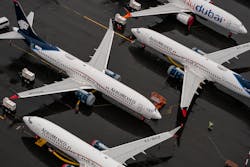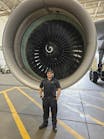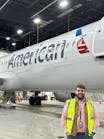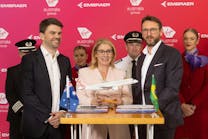Judge Challenges $2.5 Billion Boeing 737 Max Plea Deal After Outcry From Victims’ Families
DALLAS — A North Texas U.S. District judge Friday questioned Boeing’s $2.5 billion deferred plea deal in the 737 Max investigation because government prosecutors didn’t seek the input of the family members of the victims of crashes in 2018 and 2019 that killed 346 people in Indonesia and Ethiopia.
Nearly three years after the plane was grounded and more than 18 months after airlines brought the aircraft back into service, U.S. District Judge Reed O’Connor ruled Friday that the Justice Department’s deal with the aircraft manufacturer violated a federal law requiring the input of victims in such deals.
Now the court will have to go back and decide what if anything can be done to preserve the deal that sent more than $1.77 billion to airlines and $500 million to crash victim families, but also helped Boeing executives avoid criminal liability in the case.
The government made the controversial deferred plea agreement in January 2021, only months after revelatory Congressional hearings about the case forced the resignation of top Boeing executives. Boeing was also required to pay a $234.6 million criminal fine.
But O’Connor ruled the deferred plea agreement was “negotiated in violation of the victim’s rights,” court documents say.
“Next, the court must decide the question of remedy,” O’Connor wrote in his ruling.
The crash of two 737 Max jets in 2018 and 2019 set off a worldwide investigation and damaged the reputation of Boeing, which was accused of putting profits before safety. Congressional and government investigators also questioned the credibility of the Federal Aviation Administration, which delegated much of the oversight for certifying the 737 Max to Boeing itself.
The crashes were blamed on a faulty software system meant to prevent the planes from stalling. But a combination of faulty sensors and a bad software system sent the planes into a nosedive, which pilots for the jets were unable to recover from.
The planes were grounded for nearly two years, causing a shortage of aircraft at airlines worldwide, including two of the biggest customers, Fort Worth-based American Airlines and Dallas-based Southwest Airlines.
In defending the deal during a hearing in Fort Worth in May, government lawyers said they couldn’t find any evidence that Boeing engaged in criminal wrongdoing. Federal prosecutors tried and failed to pin blame on Boeing chief technical pilot Mark Forkner, but in a case also overseen by O’Connor, a jury found Forkner not guilty.
“We did not find evidence of high-level criminal offenses by high-level officials,” U.S. Assistant Attorney Jerrob Duffy said during the May hearing. “The government did not come across facts during the course of its investigation that is believed to be prosecutable.”
Lawyers for crash victims’ families say they want the government’s case against Boeing reopened and for investigation findings to be made public.
“The government deliberately concealed its agreement with Boeing from us — the victims’ families — and provided complete immunity to the company responsible for our loved ones’ deaths,” said a statement from Naoise Connolly Ryan, whose husband Mick died in the Ethiopian Air crash in March 2020. “Families like mine are the true victims of Boeing’s criminal misconduct, and our views should have been considered before the government gave them a sweetheart deal.”



